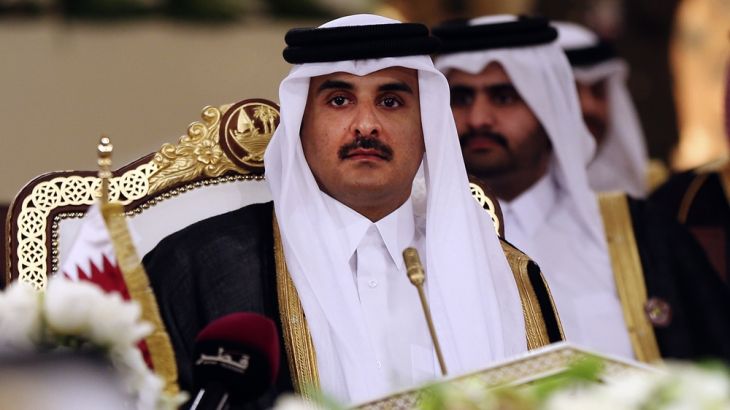
Counting the cost of the Qatar-Gulf crisis
We examine the Gulf rift and its effect on Qatar’s economy, as the crisis is about to enter its third week.
On June 5, several countries, including Saudi Arabia, the United Arab Emirates, Bahrain and Egypt severed diplomatic ties and cut off sea and air links with Qatar, accusing it of supporting “extremism” and their regional rival, Iran.
Qatar may have been isolated economically by its Gulf neighbours, but its financial markets have stabilised after an initial week of losses.
Keep reading
list of 4 itemsBoeing hit with 32 whistleblower claims, as dead worker’s case reviewed
US imposes new sanctions on Iran after attack on Israel
A flash flood and a quiet sale highlight India’s Sikkim’s hydro problems
The government says it has the resources to cope with the regional sanctions. And Qatar’s finance minister is warning that if Qatar loses money, the countries behind the embargo will lose money, too.
Credit rating agency Standard and Poor’s says Qatari banks are strong enough to hold on, even if all the Gulf money – and more – is pulled out. And it’s not just Qatari banks, the UAE’s main lenders could also lose out from a slowdown in business coming in from Qatar.
Qatar says gas exports, its top export earner, are on track, though importers are expected to push for better deals. And these gas exports matter for the UAE, too. The undersea Dolphin Energy pipeline, which supplies the UAE and Oman with about 56 million cubic metres of Qatari natural gas daily, is still operating despite the diplomatic tension.
Qatar’s economy minister, Ahmed bin Jassim Al Thani, told Al Jazeera the government is already proving it can keep the country running.
“Qatar’s economy is strong and resilient,” says Al Thani. According to economic indicators, “Qatar’s economy is the 18th-most competitive in the world – the second in microeconomic efficiency,” he says. “Looking at the diversification of the economy, 61 percent come from non-oil and gas. Our trade with the world is $330bn and it is a diversified economy that’s supported by the Qatar Vision 2030.”
Asked about the blockade, he says, “we have a clear plan and know exactly how to deal with it. More than this, we built a strategic reserve for food or other materials for our projects. That’s why we were ready to deal with such a situation – immediately within hours,” says Al Thani.
Also on this episode of Counting the Cost:
Qatar Airways CEO on the Gulf crisis: Qatar Airways has been forced to scrap dozens of daily flights to Saudi Arabia, UAE, Bahrain and Egypt. It has to take circuitous routes to avoid large parts of the Arabian Peninsula it’s barred from flying over. But Qatar Airways CEO Akbar al-Baker says the airline sees opportunities in expanding to other untapped markets.
Europe ends roaming fees: If you’ve ventured outside your mobile phone network’s coverage area, you know roaming charges stack up quickly. The European Union has now scrapped roaming fees for customers across the bloc. But consumer advocates fear phone companies will make up for the lost revenue by adding other charges.
Brexit talks: Tough talk from the European Union, as a fractured snap election verdict leaves Britain struggling to frame its Brexit position. Swedish economist and writer Fredrik Erixon offers his take.
US Federal Reserve: The US Federal Reserve has raised interest rates by a quarter point to 1.25 percent. It’s the fourth rise in 18 months. The agency has signalled another rise is likely this year, indicating confidence in the state of the US economy. The unemployment rate is at its lowest in 16 years. Domestically, the rate rise will affect borrowers, who will have to pay more on credit card debt. But this could also prompt investors to move money out of developing countries, because of the possibility of earning more from the United States.
Verizon’s Yahoo takeover: Fallen internet brand Yahoo is no longer a publicly traded company, with Verizon completing its takeover.